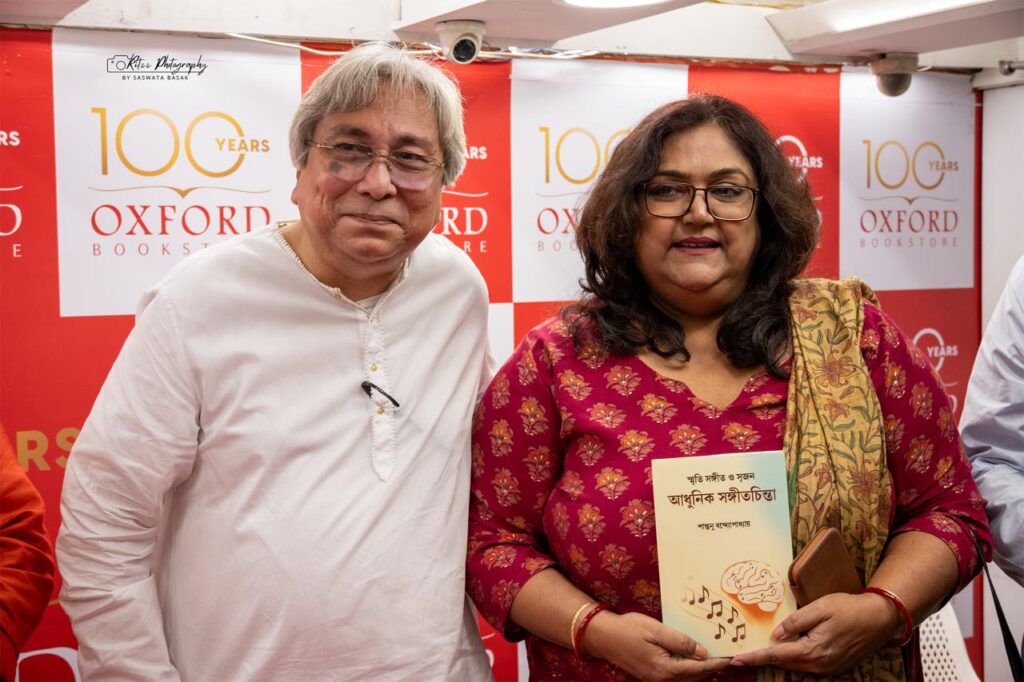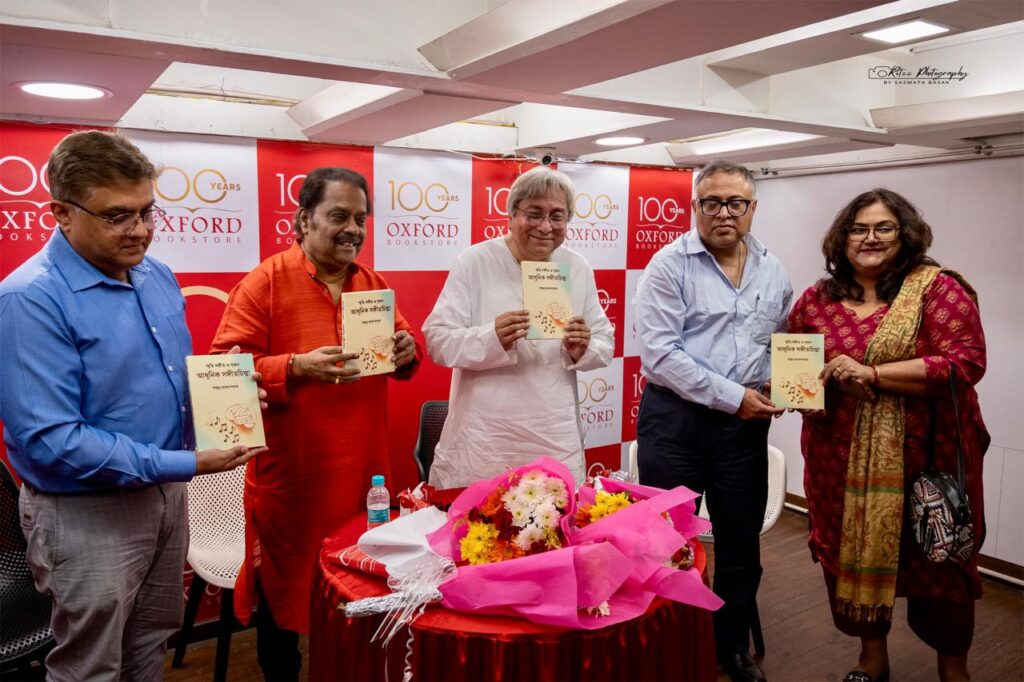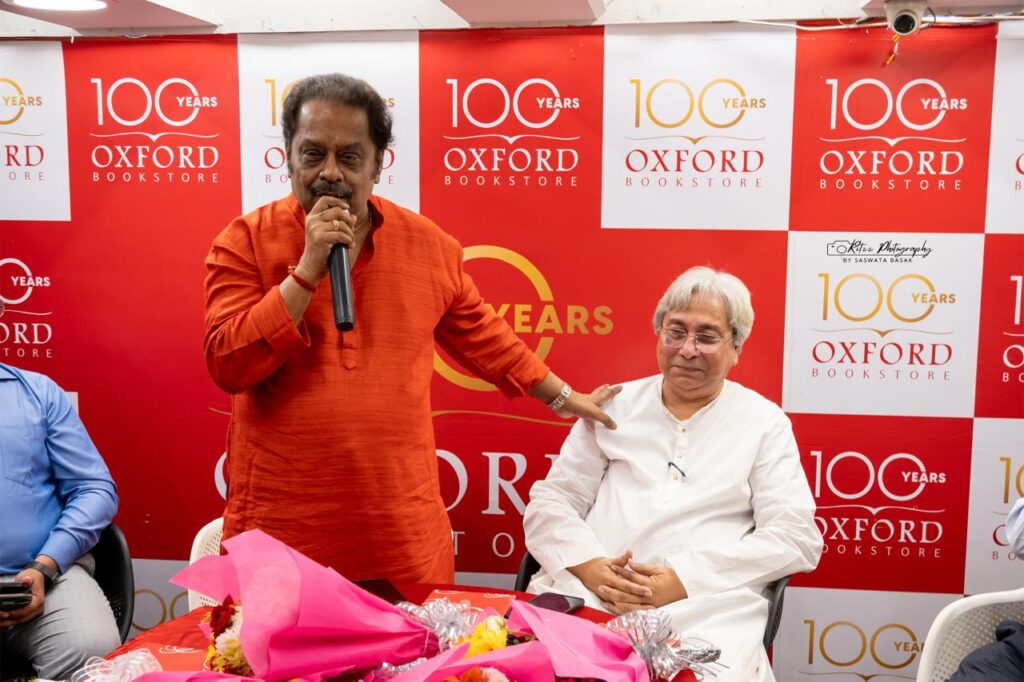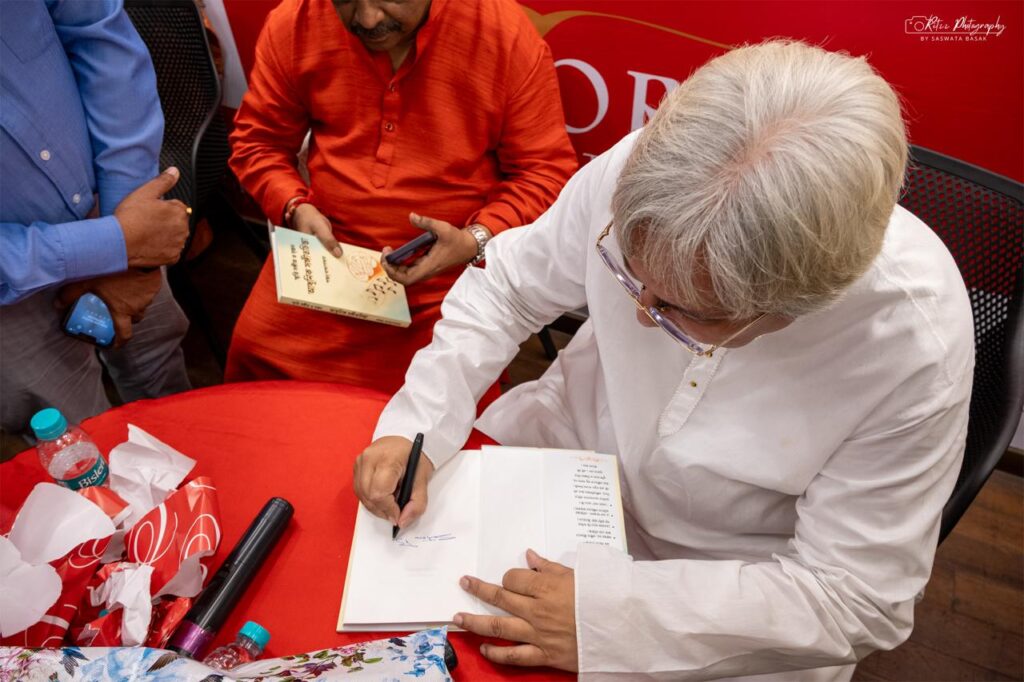
The doyens of Indian classical music have for centuries approached their art through the rigour of discipline and an elevated sense of spirituality. Pandit Santanu Bandyopadhyay, a renowned Indian classical vocalist in the Bishnupur gharana, stands apart because of his scientific curiosity and his endeavour to improve musical performance by training the brain.
Also read: “MP3” or the science of singing better, as explained by Pandit Santanu Bandyopadhyay
Stepping away from the “received wisdom” that only relentless riyaaz (practice) can make one a better singer, Pandit Santanu Bandyopadhyay has researched the science behind how one sings for about 40 years now. Recently, he published his first book on the subject, titled Smriti, Sangeet O Srijan: Adhunik Sangeet Chinta (Memory, Music, and Creativity: Modern Thinking on Music).
Written in Bengali, the book was released at the Oxford Bookstore in Kolkata on August 7, 2025. Present on the dais with the author himself were renowned tabla artiste Pandit Samar Saha; neurosurgeon Dr Sunandan Basu; and ENT specialist Dr Indraneel Chattopadhyay. The author’s wife Mahashweta Bandyopadhyay is the publisher of the book.

The author’s father, Pandit Amiya Ranjan Bandyopadhyay, one of the most respected Indian classical artistes, is an active stage performer even now past the age of 98. He was to release the book authored by his son, but was unable to make it to the venue on that particular day.
Speaking to Connected to India in an interview last year, Pandit Santanu Bandyopadhyay had said, “Received wisdom says that a singer must commit to daily riyaaz (practice) for hours in order to ‘improve the voice’ and, therefore, improve their singing. But music does not come from the voice at all; it comes from the brain, from memory. When you focus on your memory and think about the taan (defined as a rapid melodic passage) you want to execute, in exactly the way you want it, your voice will follow your brain’s lead and let you sing as you want.”
At the book launch, he again went over briefly how the physical systems within our body that produce our voice were totally integrated with the commands given by the brain.
The two doctors present — both long-time associates of the author — also spoke of this scientific link between music and the mind.
Pandit Samar Saha, who has known Santanu Bandyopadhyay from a very young age, reminisced about their time together and how the author always had an “investigative mind” that drove him to explore the science of singing better.

In the foreword of the book, Pandit Santanu Bandyopadhyay says that he has written this for both the highly talented singers — the kind said to have a “God-gifted voice” — and those who are moderately talented and strive to sing better.

Written in a very engaging manner — not a verbose narrative but short chapters filled with bullet-point notes — the book promises the reader that just about anyone at any age can improve their singing.
It says that even the most talented singers can benefit from paying attention to how the brain controls the vocal output, because this can be a safeguard against faltering voice due to advancing age. The book has been made available at physical bookstores and digital platforms.


